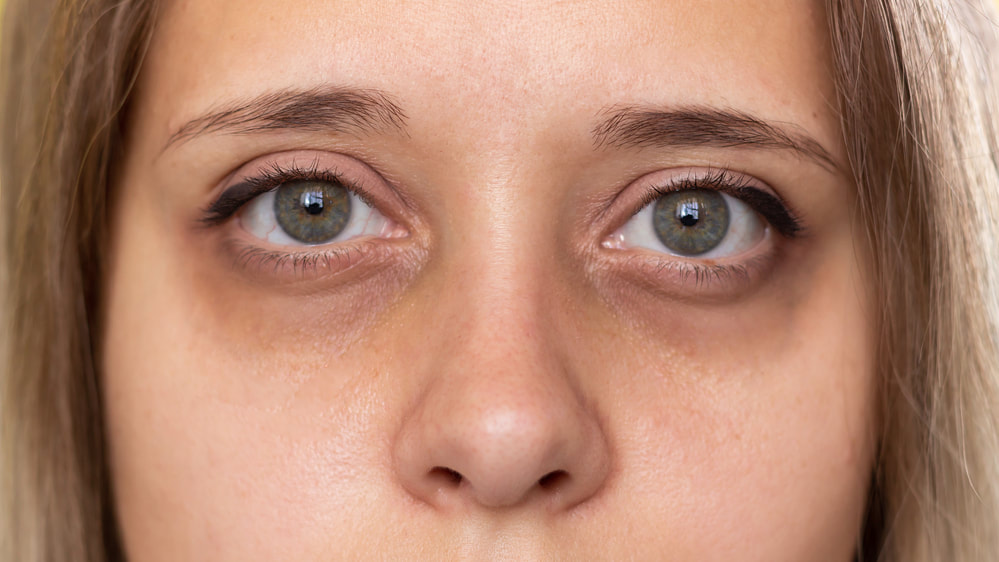March 11 through 17 is National Sleep Awareness Week, and it’s a good reminder to focus on getting the rest we need. How Lack of Sleep May Affect the EyesLack of sleep can leave our eyes feeling tired, but that’s not all. Skimping on sleep may also have the following effects on our eyes: Dark Circles If you’ve ever pulled an all-nighter or fell short on sleep, you know it might show in your eyes. It’s common to have dark circles, puffiness, or red eyes from lack of sleep. It’s not entirely clear why lack of sleep causes cosmetic eye issues, but not getting enough sleep may increase the retention of fluid and blood around the eyes. Increased Dryness While we sleep, our bodies uses the downtime to repair cells. When it comes to our eyes, sleep deprivation may affect tear production. In one study published in the Journal of Investigative Ophthalmology & Visual Science, the results indicated that participants that had sleep deprivation had reduced tear secretion, as opposed to the control group. Reduced tear production and increased dryness can lead to a gritty and irritated feeling in the eyes. Eye Twitching (Myokymia) Occasional eyelid spasms or twitching is common. Involuntary eyelid spasms do not affect vision, but they can be annoying, especially if they are frequent. The spasms are a result of nerve impulses. In most cases, doctors are not sure why they occur, but according to the American Academy of Ophthalmology (AAO), eyelid twitching tends to happen most often when we are tried. Possible Eye Complications Related to Sleep ApneaThe effects of having a poor night’s sleep from time-to-time are temporary and primarily cosmetic and annoying. If you have an untreated sleep disorder, such as obstructive sleep apnea, however, it can have serious consequences for your vision. Sleep apnea involves pauses in breathing due to an obstruction that blocks the airway. In many cases, obstruction occurs when the soft tissues in the back of the throat relax. The pauses in breathing are brief, but they can cause oxygen levels to drop and blood pressure to rise. Over time, untreated sleep apnea can increase a person’s risk of cardiovascular disease, including a heart attack and stroke. According to the AAO, people with sleep apnea also have a higher chance of developing certain eye problems or exacerbating existing underlying eye conditions. For example, people with untreated sleep apnea may have an increased risk of retinal problems, floppy eyelid syndrome (loose, floppy eyelids), and glaucoma. The decrease in oxygen and rise in blood pressure that can occur with sleep apnea may affect the optic nerves and may contribute to the development of glaucoma. Tips for Getting Better SleepIf you think you may have a sleep disorder, it’s vital to see your doctor. Treating sleep disorders is one of the most important things you can do for your health. There are also additional things anyone can do to improve their sleep and keep their eyes healthy, such as:
Sleep is a critical component to maintaining good eye health. Treating sleep disorders and practicing good sleep hygiene can help you get proper shuteye and our bodies restore. If you have any questions about your eye health or sleep conditions that may be affecting your eye health or you would like to schedule an appointment with one of our eye doctors, please call our office at 508-746-8600. Here’s to wishing you great sleep! Comments are closed.
|
EYE HEALTH BLOGCategories
All
Archives
July 2024
|
|
Kadrmas Eye Care New England
55 Commerce Way, Plymouth, MA 02360
14 Tobey Road, Wareham, MA 02571 133 Falmouth Road (Rt 28), Mashpee, MA 02649 |
Phone Number:
1-508-746-8600 Hours: Monday through Friday — 8 AM – 4:30 PM |


 RSS Feed
RSS Feed
